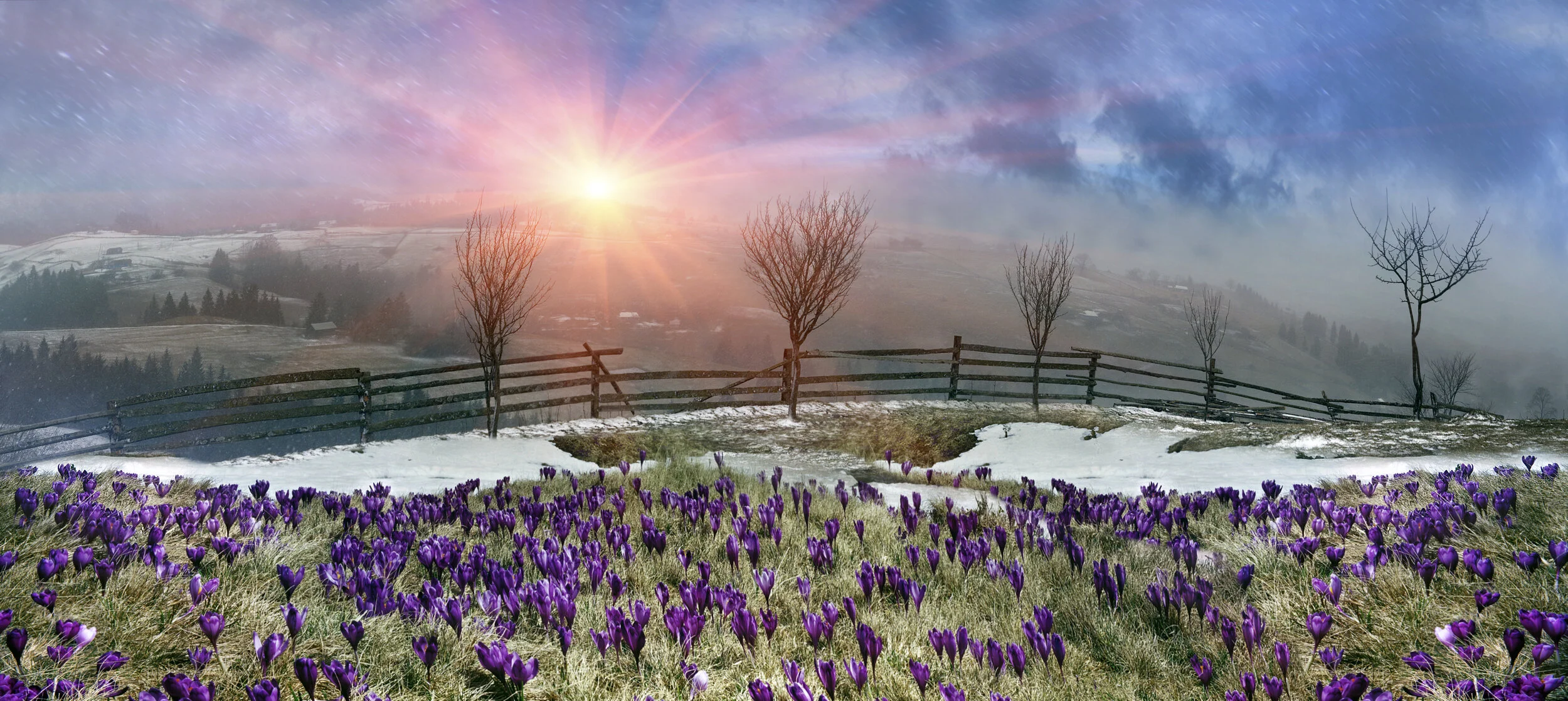As I write this, it’s the month of March. This reminds me of the day I learned that March has a special place in the year.
I was at my elementary school near Chicago, Illinois, USA, in first or second grade (age 7 or 8). One day, my teacher said, “What month is it, children?”
"It’s March!” we chorused.
“Yes! Do you know what’s special about March?”
Silence.
“Ah!” said the teacher. “March comes in like a lion and goes out like a lamb.”
I was puzzled until the teacher explained:
March starts out cold, like winter. It’s fierce like a lion. But when it ends, when it 'goes out,' it’s warm and gentle, like a lamb in spring.
I loved that! I had never thought of any month as having a special place among the other months, much less as sharing qualities with an animal!
In short, I felt like I had just learned a secret of the universe! Wow!
Pam’s First March in Massachusetts
I moved from Chicago in my late teens and ended up in Boston, Massachusetts—where the climate was similar to Chicago’s. Decades later, I married Pam, who came to Boston to live with me.
Pam had grown up in the warmth of Atlanta, Georgia. The very first March that Pam lived in Boston, she was outraged! Yes, she expected it to be cold at the start of March. But at the end of March, it was still cold!
I explained to her that snowfall was common in Boston even throughout April—and once in a while, in May.
Pam said, “Are you saying that March here comes in like a lion, and goes out—like a lion?”
Duh!
For the first time, I realized: what Pam said was true! It had always been true! In Chicago and in Boston, where I had lived all my childhood and most of my adult life, March almost never “went out like a lamb.”
Yes, March might have had temporary moments of warmth. The lamb might have stuck its nose in for a short visit, but it never stayed.
I was shocked. I had believed my first-grade teacher for all these years, in spite of the evidence of my own senses!
Denying Our Own Experience?
I think something similar happens to many of us from time to time.
We hear an appealing explanation of something surprising or previously unexplained. Then, like me in first grade, we grab onto it as the truth.
Once we embrace such a “truth,” we hold onto it so tightly that it may require something extraordinary to cause us to question it.
Facing Storytelling Mysteries?
We are not born knowing how to tell stories—or even how to speak a human language.
As children, we learn our culture’s ways of telling and structuring stories over a period of years*, but we don’t usually store memories of how we learned this.
While in this state of “unaware competence” we meet some chilling ideas about “talent” and the lack of it. We probably learn that music, dance, narrative writing, and other abilities are available only to those with a specific, inborn ability**. This sets us up to wonder whether we are among the lucky few. We may doubt that we have “storytelling talent.”
Fortunately, telling and listening to stories of daily life are so ubiquitous that we all learn to tell about our daily experiences. We learn to listen to the conversational stories of others, too. So we develop a strong, unconscious sense of what makes a story, what to expect when hearing one, and how to share our own experiences with others.
But we remain vulnerable to the idea that we may lack “storytelling talent.” This sets us up to grab onto “the secrets” of storytelling structure. They help reassure us that we can, in fact, create and tell stories.
Unconscious Knowledge
Nearly all of us love stories in one form or another. We absorb them; we get involved in them; we may repeat them or make up our own from our experience or from our imagination.
But we don’t necessarily know about them.
So we may be thrilled when somebody describes, say:
The three-act structure; or
Freitag’s pyramid; or
The Hero’s Journey, etc.
Such theories can captivate us by helping us see some order in the swirl of the narrative world.
Sadly, though, like with my unquestioning acceptance of the proverbial phrase about March weather, we may be so glad to hear something that makes sense about storytelling, that we’ll grab onto a misconception about it, even when it goes against our actual experience. At the very least, we may over-value a reasonably useful tool and come to see it as key to storytelling.
A Deeper Truth?
If the “structural approach” to stories is, at least, incomplete—and sometimes misleading—what’s the deeper truth?
What’s the equivalent to “the true nature of the seasons,” in storytelling? What is the actual truth, as opposed to an engaging falsehood?
The Truth That Sets Us Free
Stories aren’t usually “born whole,” like the goddess Athena, who emerged fully mature from the god Zeus's head. Instead, they are grown like ordinary mortal infants. A conversational story may begin as a memory or as a fantasy, but it always develops its form in the course of repeated tellings.
This is greatly freeing for us storytellers! We don’t have to give birth to a perfect story; we just have to begin the process of noticing, incubating, and then developing it—by imagining it and telling it, perhaps many, many times, to others.
This is surely an example of the Latin phrase, “Veritas vos liberabit”—the truth will set you free!
Footnotes:
*See http://storydynamics.com/articles/how-to-become-a-natural-born-storyteller
**See the section “Do I Have What It Takes to Tell?” on this page: http://storydynamics.com/beginning-storytelling-toolkit

